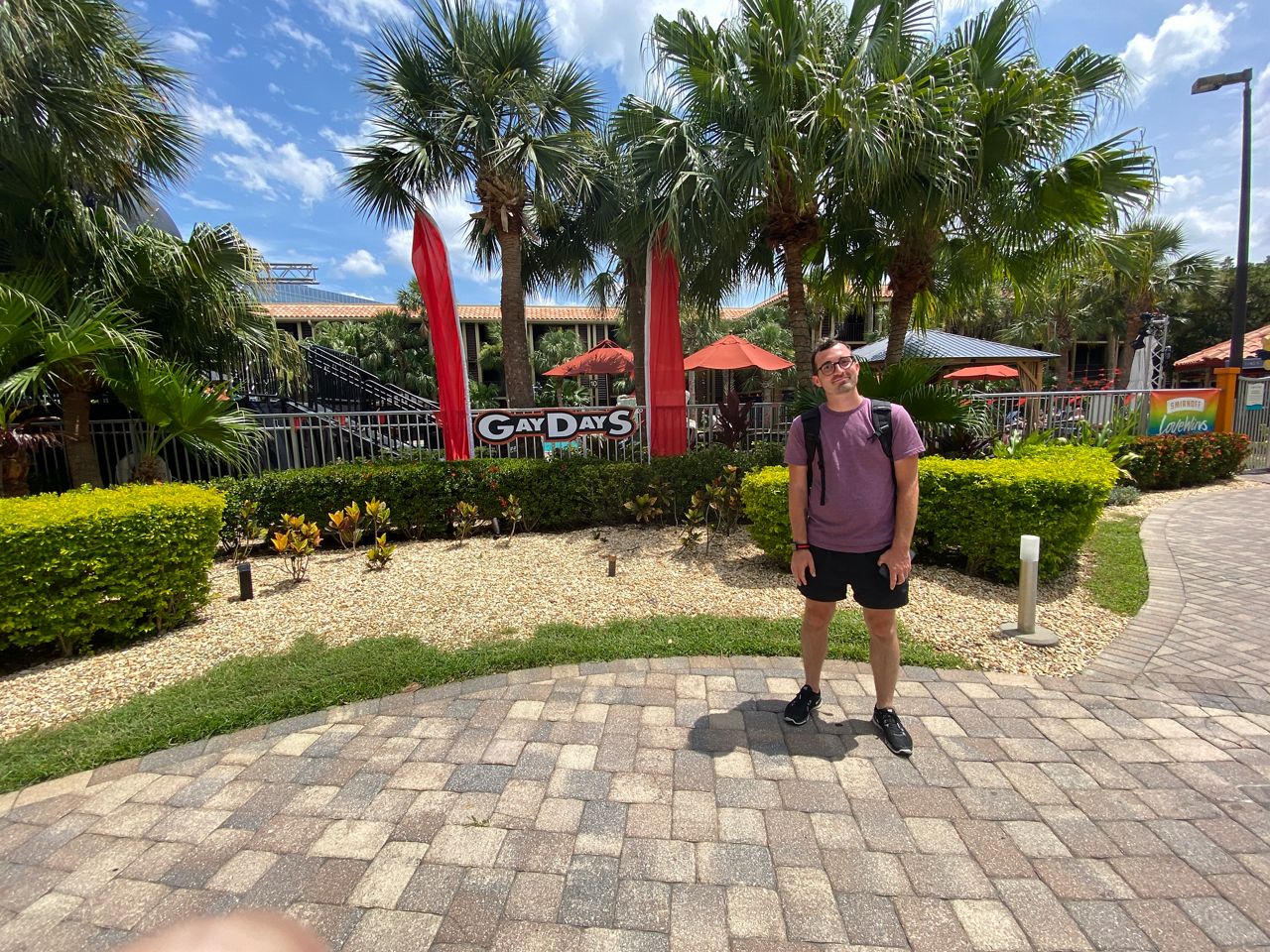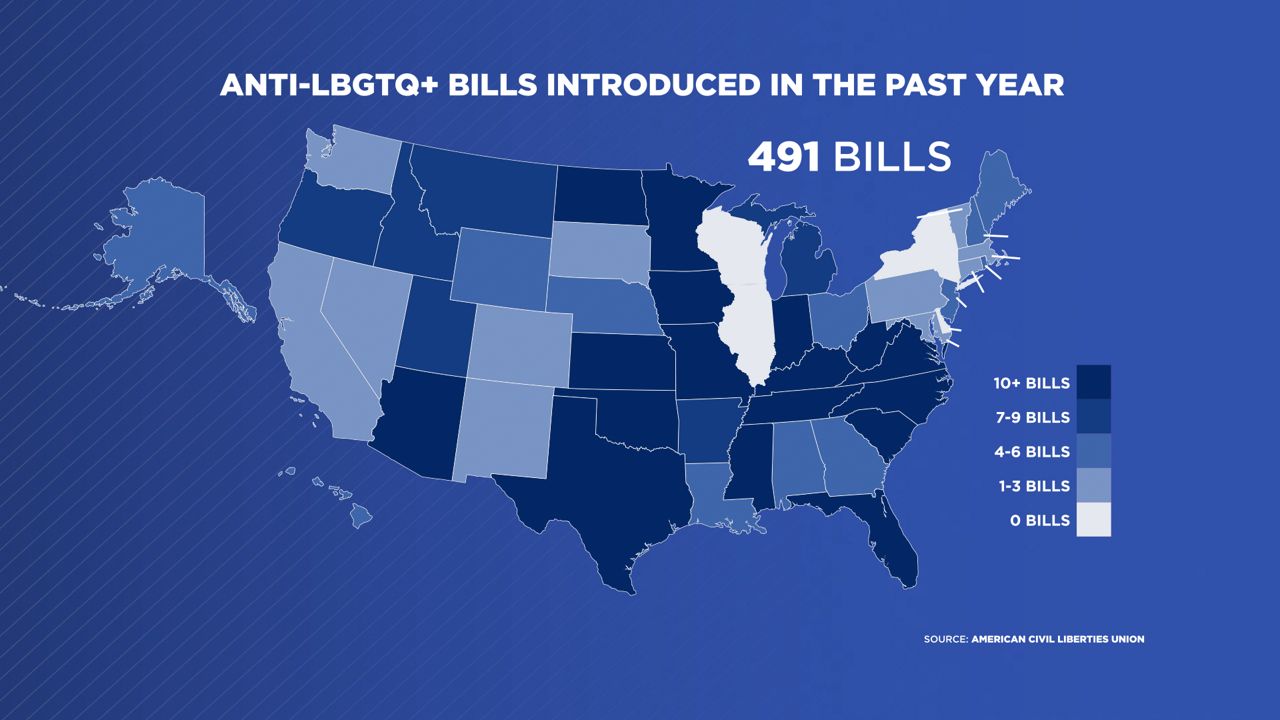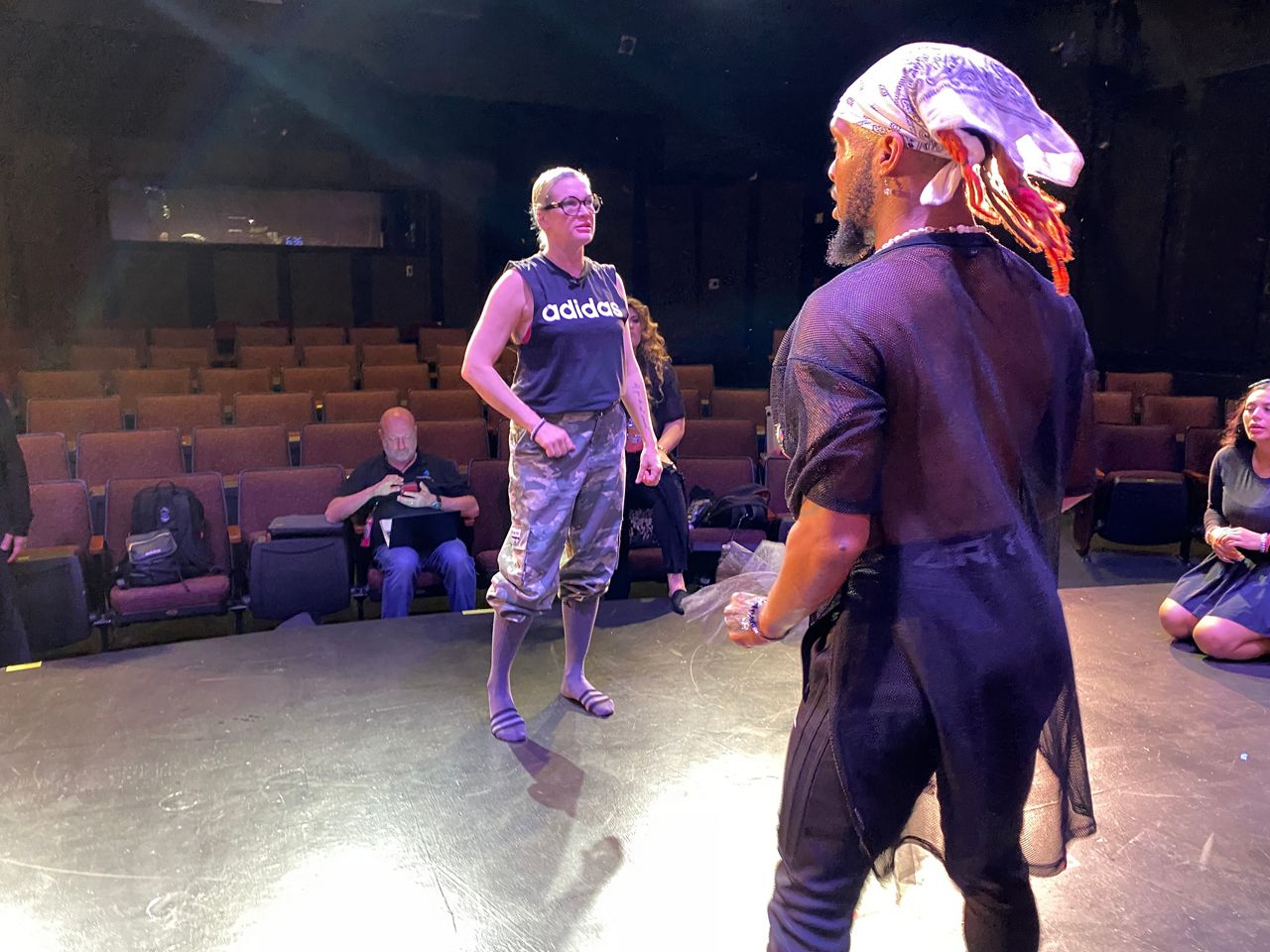ORLANDO, Fla. — Less than a week before Orlando’s annual, internationally-known Gay Days celebration kicked off earlier this month, organizers say they were scrambling to reimagine the event after several company sponsors dialed back their support.
What You Need To Know
- Four companies withdrew their promotional branding for Gay Days, CEO Joseph Clark said
- He declined to name the specific companies, but said they ranged from local to national brands
Four companies withdrew their promotional branding from the event and its website this year, including at least one company that’s supported Gay Days for “double digit years,” according to CEO and co-owner Joseph Clark. He said all companies still upheld their financial commitments to the event.
Clark declined to call out any specific companies by name.
“These companies will still put their rainbow logo up as of June 1 for Pride Month, but yet, where are you standing with us right now?” Clark said, speaking with Spectrum News 13 on May 31, the day before Gay Days began.

Although several national and local companies pulled back their support of Gay Days, Clark said the biggest impact came from several local restaurants withdrawing at the last minute.
“Our ‘Taste of Gay Days’ event was affected to the point that we had to reimagine the entire event, because restaurant partners were concerned,” Clark said. “They were concerned about participating in the event, and the blowback that could potentially happen to other guests at their restaurants.”
Although Clark said he’s disappointed and angry that some companies dropped out, he said he didn’t think it would be fair to throw them into the public spotlight for doing so.
“We didn't ask for any of this to happen, and neither did they,” he said.
Clark referenced several new pieces of state legislation that impact members of LGBTQ+ communities: ranging from a bill that bans gender transition care for children, and restricts it for adults; to one that blocks venues from admitting children to “adult live performances.”
While critics say the term "adult live performances" is too loosely defined and that it targets drag shows, the bill actually defines adult performances as something that depicts or simulates nudity, sexual conduct, or specific sexual activities, including lewd exposure of prosthetic breasts.
Clark said Florida’s new laws are sparking concern and confusion about what is and isn’t allowed at events, prompting some longtime Gay Days partners to pull back on their public LGBTQ+ messaging and support.
In just one example, Clark said Gay Days staff were asked to remove signs bearing phrases like “love is love” from the hotel where guests stayed for this year’s event.
“It’s empowered this sense of cancel culture, which is completely reversed (from) where it was even a year ago,” Clark said. “They’re fearful. Our guests are, the companies participating — they’re all fearful of what potentially could happen.”

Local performance artist and event producer BlueStar is also picking up on that sense of fear. She says she’s noticed some corporate clients shifting away from the drag and burlesque performances they usually book for holiday parties and private events through her company, Blue LaLa Events.
“It’s terrible to see the divide, and the censorship on art that is happening. For what? We’re just human beings, making art,” she said. “It really affects business … and I think, most importantly, it affects our heart.”
Due to a social climate that she describes as hostile, BlueStar asked that Spectrum News identify her by the name she has used exclusively for many years, rather than her legal name.
BlueStar says she has been at the forefront of Orlando’s arts scene for more than two decades, helping to cultivate the city’s burlesque scene ever since she moved to Central Florida by way of New York.
A former professional ballet dancer, she originally grew up in Georgia, where she was once crowned Miss Cobb County.
At that time, BlueStar says she was secretly dating her first girlfriend.
“My dad thought his dreams were being shattered,” BlueStar said, reflecting on when she first came out as a lesbian. What followed was what she described as a 10-year battle of being intermittently estranged from her parents.
Eventually, she reconnected with her dad after he became seriously ill and almost died. They maintained a relationship until he passed away, six years later, BlueStar said.
Although BlueStar’s coming out experience was challenging, she says she found community and acceptance in “the itty bitty bubble of gayness in Orlando,” where she immediately started working in a gay bar and building her business.
BlueStar says she’s spent much of her last 22 years in Central Florida focused on “pivoting” burlesque and drag, to a model that’s more universally approachable.
“When I started in the burlesque scene here, I was really pushing a lot of boundaries," she said. "But then I realized that I wanted people to be able to bring their parents to a show. I always said, ‘Do what you want to do and be free in who you want to be — but if you brought your mom to the show, would she be alright with it?’”
For corporate burlesque events, BlueStar’s company focuses on “more of the artistry than the tease.” During those events she says performers wear tights and full-coverage undergarments, and there’s a strict rule against touching or interacting with any strangers in the audience.
“There are ways to be sexy without offending some people that might not understand,” BlueStar said. “And so we cultivated this kind of safe space of pushing boundaries.”
But right now, BlueStar says for her and many other members of Orlando’s LGBTQ+ community, that safe space doesn’t feel so safe.
“Watching the angst and anxiety build in a community that was once so connected through diversity — (to) watch that just kind of crumble is disheartening,” she said.

In response to Florida’s new laws, several civil rights groups recently issued travel advisories for the state, including Equality Florida and the Human Rights Campaign. Its joint advisory reads, in part: “While not a blanket recommendation against travel nor a call for boycott, the travel advisory outlines the devastating impacts of laws that are hostile to the LGBTQ community.”
Clark of Gay Days said he understands the reasoning behind such travel advisories, but is upset about the negative impact they seem to be having on LGBTQ+ friendly initiatives in Florida. Ahead of Gay Days, Clark said out-of-town guests were contacting staff with more safety concerns and cancellation requests than he’d ever seen before.
“Guests are scared,” Clark said before the event, scrolling through some of the worried social media comments and emails Gay Days staff received.
Although he said some guests did cancel due to concerns for their safety in Florida, Gay Days staff were able to reassure many others who ultimately kept their reservations. Clark said it was often effective to tell guests how Orlando, specifically, is a welcoming city.
“I mean, there are parts of Florida that yes, I would not go to myself — they’re just not as welcoming," Clark said. “But Orlando is a very, very welcoming city.”
Clark said he wishes civil rights groups would have given a heads-up to companies like his before issuing their travel advisories, which he described as “broadly painted” and not reflective of more progressive Florida cities, like Orlando.
“We’re a travel and tourism city — our money comes from people coming from outside in,” Clark said. “So to issue an advisory to say, ‘don’t come’ — that does affect us.”
Girls in Wonderland, another local event celebrating LGBTQ+ communities, also saw a “small percentage” of cancellations stemming from concern about Florida’s new laws, according to event co-founder Alison Burgos. Two days before the event, Burgos said between 10 to 20 guests had canceled, out of thousands of registered attendees.
Burgos credited that relatively small percentage of cancellations to her team’s efforts. She said they spent weeks responding to hundreds of concerned guests via social media, email and phone calls.
“There is definitely a business effect,” Burgos told Spectrum News.
Although Burgos said she’s grateful most of her event’s sponsors maintained their support this year, one sponsor did drop out, several weeks before Girls in Wonderland kicked off. She declined to specify which sponsor, saying she hopes they’ll come back around for future events.
Burgos and Clark each said they received requests from worried guests to move their respective events to another state — a suggestion neither of them said they considered.
“We’re born and raised Floridians,” Burgos said, referencing herself and the event’s co-founders. “I’m not running away from my state. I’m gonna stand here and fight for my community and for my rights.”
Ultimately, Burgos said Girls in Wonderland had its most successful year ever, in terms of attendance.
“Our audience feedback was that they were so grateful to have a safe space to celebrate who they are,” she wrote in a text to Spectrum News 13.
Clark also characterized this year's Gay Days as successful, although he believes attendance was down to some extent. Clark said he could not immediately quantify this year's attendance but would have more firm numbers in the coming weeks.
Some Pride events across Florida are being canceled in light of safety concerns, including one in St. Cloud, the Orlando Sentinel recently reported.
But Orlando’s Come Out With Pride celebration at Lake Eola on Oct. 21, 2023, won’t be canceled, according to executive director Tatiana Quiroga.
That's despite several of their sponsors already dropping out, due to safety concerns prompted by the recent travel advisories, Quiroga said. She also declined to name specific companies.
The group is working closely with the Orlando Police Department and the city to ensure attendees are safe at this year's event, Quiroga said.
“We want to make sure that people understand that Orlando is still who we are and who we’ve been: a welcoming and inclusive city,” Quiroga said. “This is home, and we will continue to fight for it to be our home.”



